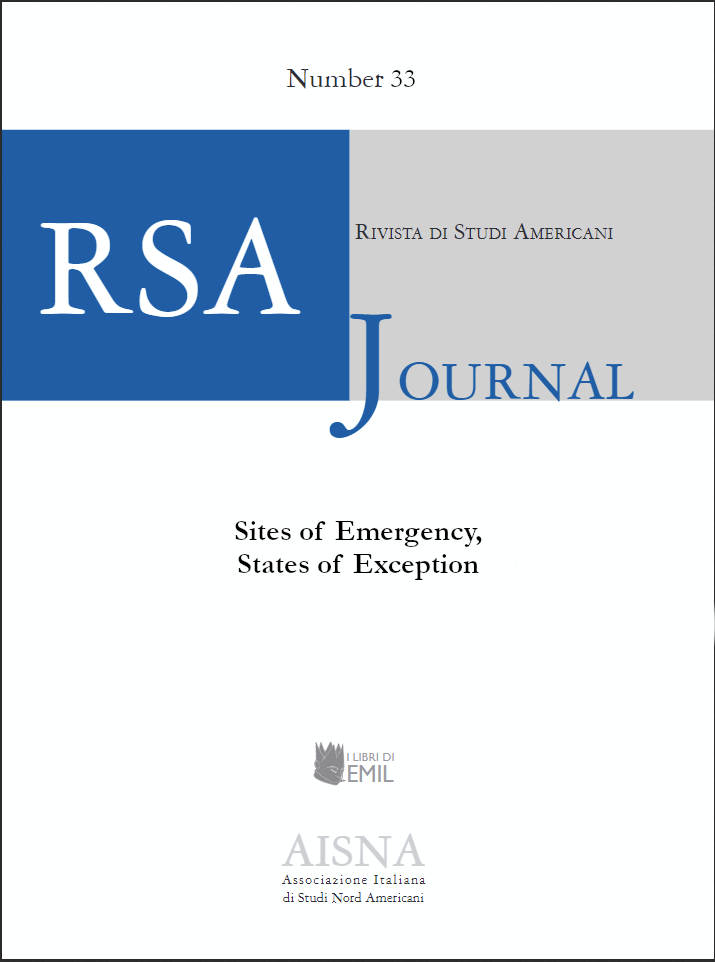“The Other Side of the Ditch”
(De)Constructing Environmental Crisis in William Vollmann’s “Imperial” and Cormac McCarthy’s “The Road”
DOI:
https://doi.org/10.13135/1592-4467/8426Keywords:
states of emergency, ecocritical approach, migration, climate issuesAbstract
Although in different ways, William Vollmann’s Imperial and Cormac McCarthy’s The Road engage with environmental and societal problems. Representing a state of ecological crisis, among other things, they indicate the fragility of human beings in the world. Against the backdrop of their shared, though not similar, conceptualization of climate issues, the article examines how these books depict the USA as an ongoing site of emergency through an ecocritical approach. More broadly, I analyze how the economic and political apparatus have historically exploited America’s natural resources for capitalist profiteering, most often by recourse to states of emergency. Imperial depicts Southern California as a dystopian wasteland as well as a haven of possibility. Imperial County’s arbitrary border with Mexico delineates the violent imposition of human will on the natural territory for economic and political reasons. At the same time, it represents hope for Mexican immigrants. Vollmann’s Imperial County shows immigration as a long-lasting, neglected issue of concern at the US-Mexico border. The Road offers a post-apocalyptic vison of the world where natural resources are exhausted. The unfolding of the (natural) catastrophe has led the main characters, a man and his son, to migrate across the USA. Like in Imperial, migration seems to promise a better condition of life. Nevertheless, the gray sea at the end of the journey suggests “a world unheard of.” By providing such descriptions of the American landscape, these books delve into the anxiety of living in an uncertain world while challenging the US system of socio-political governance.
Downloads
Published
Issue
Section
License
RSAJournal applies a CC BY-NC-ND license to all its contributions. This license enables reusers to copy and distribute the material in any medium or format in unadapted form only, for noncommercial purposes only, and only so long as attribution is given to the creator. CC BY-NC-ND includes the following elements:
- BY: credit must be given to the creator.
- NC: Only noncommercial uses of the work are permitted.
- ND: No derivatives or adaptations of the work are permitted.
Authors who publish with this journal agree to the following terms:
- Authors retain the copyright and full publishing rights for their submissions to the journal.
- Authors grant the journal right of first publication with the work simultaneously licensed under a Creative Commons Attribution-NonCommercial-NoDerivatives 4.0 International License that allows others to share unedited work for non-commercial purposes with an acknowledgement of the work's authorship and initial publication in this journal.
- Authors are able to enter into separate, additional contractual arrangements for the non-exclusive distribution of the journal's published version of the work (e.g., post it to an institutional repository or publish it in a book), with an acknowledgement of its initial publication in this journal.




